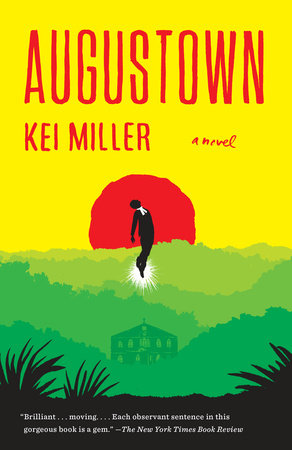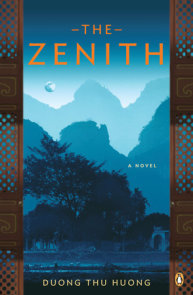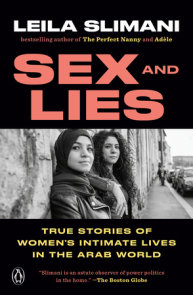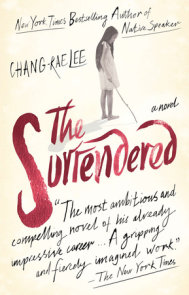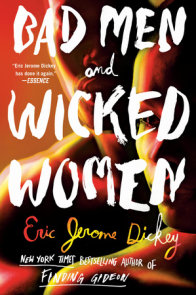READERS GUIDE
Questions and Topics for Discussion
1. How is Augustown (and the entirety of Jamaica) not only the setting but also a character in this novel?
2. In The New Yorker review, Laura Miller writes: “Like Jane Austen’s Emma, Augustown is a village novel, and, even if (unlike Emma) it wears its politics on its sleeve, it exemplifies the belief that everything you want to know about human beings can be found in an overlooked, out-of-the-way little community, as long you pay it sufficient attention.” Do you agree with this comparison? How does Augustown include “everything you want to know about human beings?”
3. Describe the secondary characters of Southpaw and Clarky. How are their stories and presence crucial to the novel?
4. Discuss the idea of officially recorded history versus oral history. “There is always this divide between the stories that were written and stories that were spoken” (p. 91). Is there anything in your own history or that of your family where there are two different versions of history?
5. “It would be no exaggeration to say that every day contains all of history.” (p. 4). What does this mean, and how does this connect Augustown to Virginia Woolf’s Mrs. Dalloway and James Joyce’s Ulysses? If you have read them, in what ways are the three novels similar and different?
6. What is the purpose of having an unnamed omniscient narrator? And what is the effect when you realize whom the narrator is?
7. “What you fighting is Babylon system, all them things in this life that put a heavy stone on the heads of people like you and me—all them things that cause we not to rise” (p. 11). “Babylon would try its damnest to find out what that thing was, and they would try to take it from you” (p. 33). Who and what is Babylon? What does this refer to and signify? And why is it always trying to keep the people of Augustown down?
8. What happens in the classroom after Mr. Saint-Josephs cuts off Kaia’s hair? Why are the children “being ushered into a new understanding of the world—one in which adults were not always right” (p. 48)? And why does he cut off Kaia’s hair?
9. Describe Mr. Saint-Joseph. Do you sympathize with him at all? How does his strict order fall apart in the classroom and in his life?
10. Preacher Alexander Bedward, Governor Leslie Probyn, and the journalist William Grant-Stanley are all real historical people. How do these three contribute to the story? And why do you think the author incorporated these three real people into his fiction?
11. Why is it important to hear Probyn’s side of the story and also the “official” story from the journalist’s viewpoint?
12. “For what is more human than this, the desire to escape the troubled earth and its depressing gravity? What is more human than the desire to rise above it all, to fly?” (p. 238). Who flies in the novel? What does flying symbolize?
13. What is the importance of Bedward and his story to the people of Augustown? Why does Ma Taffy describe him as “just another striving man that this blasted country decide to pull down” (p. 109).
14. After Bedward flies/doesn’t fly and is forced down from the tree, the narrator addresses the reader and says, “Look, this isn’t magic realism. This is not another story about superstitious island people and their primitive beliefs. No. You don’t get off that easy…. Consider a more urgent question; not whether you believe in this story or not, but whether this story is about the kinds of people you have never taken the time to believe in” (p. 116). Discuss this passage and its importance to the novel, and to your own life.
15. How do we learn about the creation of Augustown on 1 August 1838? Who forms the town? Why is this crucial to the story?
16. Before she dies, the old woman with the beautiful voice, Sister Gilzene, queries a young girl, “I ask if you want to hear a story. Maybe you can keep it for me, and keep it from the hole where they going to bury me soon. But you cannot be selfish with it, Lloydisha. If I tell you, you have to make sure it don’t die with you either” (p. 150). Why is the story important?
17. How does this novel celebrate storytelling and the importance of stories in its characters’ lives and in all of our lives? What is the importance of oral stories, individual stories, collective stories, and histories?
18. Do you think the relationship between Gina and Michael is doomed from the beginning? Why does she accuse him of being a part of Babylon?
19. Describe the relationship between Gina and Mrs. G. How does the relationship evolve over time? Why does Gina withhold the crucial information about Kaia from Mrs. G once their relationship grows? Can they ever really be friends? How and why do race and class play into their relationship?
20. Describe Kaia and his relationship with the two women in his life, Ma Taffy and Gina. How is the relationship between Ma Taffy and Gina, different from that between Gina and Kaia? Are the three at all similar besides being related to each other?
21. Do you think Kaia will ever get to fly?






